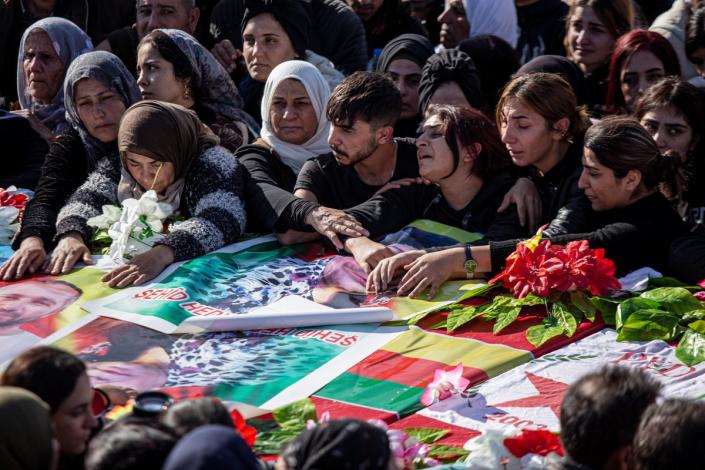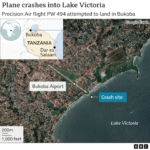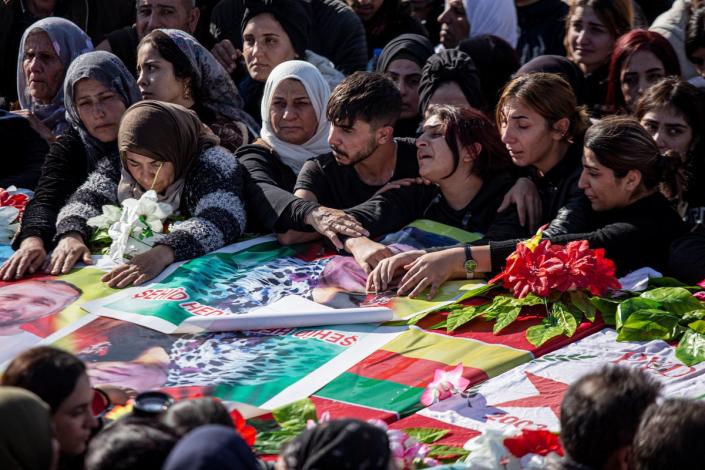
The Middle East’s Kurds are being bombed, shot at and arrested across four countries. Scores have died in political unrest in northwest Iran. Some two dozen have died in airstrikes on northern Syria. And both Tehran and Ankara are threatening to ground invasions which will kill and displace even more.
It is an unprecedented moment of pressure on one of the world’s largest stateless ethnic groups. It has come about in part because of the war in Ukraine and international disengagement from the region.
Turkey and Iran are upping pressure and increasing violence against on Kurdish populations in their own countries as well as Syria and Iraq. In response to a 13 November bomb attack, Turks have launched cross-border airstrikes and are preparing for a possible ground invasion of Kurdish-controlled regions of northern Syria, and have struck positions of Kurdish militant groups in Iraq. Ankara has also upped pressure on the country’s main Kurdish-led political party.
Iran is dispatching heavily armed ground forces to quell one segment of a nationwide political uprising in its own Kurdish towns and cities. In one video clip posted to the internet, pro-regime gunmen can be seen attacking unarmed protesters in the city of Javanrud, opening fire wildly while yelling, “God is great!”
Like Turkey, Iran has also been launching missiles against Kurdish rebel groups across the border in Iraq, using drones and fighter jets in an attack early Sunday that was at least the second in recent weeks.
“We’re seeing that Turkey and Iran are bombing more and further into Iraq and Syria with a volume and cadence we haven’t seen for a while,” said Hetav Rojan, a security expert based in Cophenhagen.
While simultaneous, there is little evidence of direct coordination between Ankara and Tehran in attacking Kurds. But there is likely some tacit understanding between the two nations, and Iran likely gave Turkey a green light for its attack on northern Syria.
Analysts say both domestic political calculations in Ankara and Tehran and geopolitical shifts are driving the confluence of violence and political pressure.
“This is one of the rare moments when Iran and Turkey are seeing what’s happening to them as an existential threat by the Kurds,” said Abdulla Hawez, a London-based analyst of Kurdish affairs. “Before, each country would use the Kurds against each other. Right now what’s happening is similar in both countries.”
Both Tehran and Ankara see Kurdish aspirations as a long-term threat, and both share long histories of abuse against the group, which numbers between 30 million and 45 million and is spread across sections of southeast Turkey, northern Syria, northern Iraq and northwestern Iran.
“For both Ankara and Tehran, it’s incredibly valuable to have an external enemy archetype that’s been cultivated through decades of minority marginalisation, to shift blame for domestic woes,” said Mr Rojan.
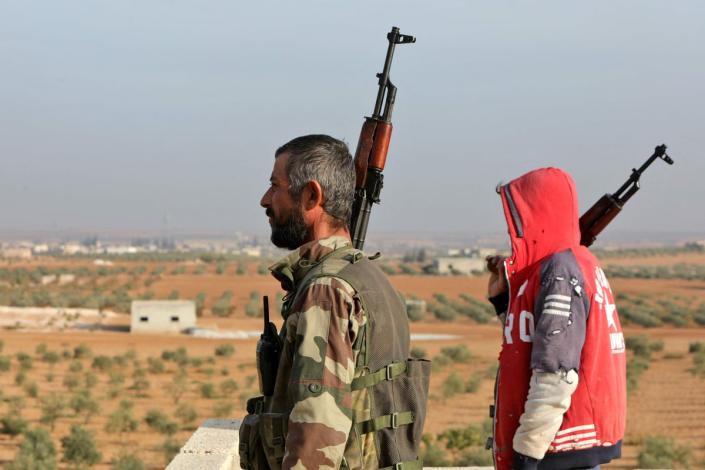

Turkey for much of the 20th century denied Kurds basic cultural rights and has been waging war against the Kurdistan Workers Party (PKK), an outlawed separatist group since the 1990s. Ankara accuses the PKK’s Syrian affiliates in self-rule region called Rojava of being behind the deadly bombing of a shopping district in Istanbul this month which killed six people.
At least 31 people were killed in the Sunday night and early Monday morning airstrikes on Syrian and Iraqi positions of PKK affiliates. Ankara has warned that it is preparing a possible ground incursion into northern Syria, prompting statements of concern from Moscow and Washington.
Turkey faces crucial elections next year in which the country’s Kurds will play a significant role in denying or ensuring the reelection of President Recep Tayyip Erdogan.If Kurds embrace Mr Erdogan’s opponents, it could cost him the leadership.
Upping pressure on the ethnic group could widen splits between Kurds and an opposition that has often shown even more animosity toward Kurdish aspirations than Mr Erdogan’s Justice and Development Party (AKP).
“Erdogan is trying to drive a wedge within the opposition,” said Mr Hawez. “One of his strategies is going to make it very difficult for any opposition to get close to Kurds.”
Turks have for months been signalling a possible ground incursion into northern Syria to wrest control of the city of Kobani from Kurds. Storming the city of perhaps 100.000 just seven months ahead of the 23 June elections entails risks but could also yield political rewards. “The possibility of Turkey attacking Kobani is very high for various reasons,” said Kaveh Ghoreishi, a Berlin-based journalist specialising in Kurdish affairs.“ââErdogan is hoping that this war will mobilise the nationalist body of the society in his favour.”
While more tolerant of Kurdish language and culture, Iran has also fought against Kurdish rebel groups and has been accused of discrimination against Kurds, who are mostly Sunni Muslim in a country dominated by Shia Muslim clergy. Kurds have taken a prominent role in the ongoing 10-week nationwide uprising triggered by the death-in-custody of 22-year Mahsa Amini, a Kurdish woman who was abducted by the morality police on a visit to Tehran.
Shows of unity between Iran’s ethnic Kurds, Baluch, Persians and others within the nationwide movement have rattled Tehran. Public displays of cross ethnic and sectarian solidarity pose an especially sharp threat to a clerical regime that has largely counted on fears of separatism and civil war to keep its opponents divided and its supporters united.
“It’s not often we see the Kurdish and Baloch minorities included in Iranian protests because of the ethnic and political divide between majority and minority groups,” said Mr Rojan. “This ups the ante for Tehran which is quickly looking for perceived external enemies to shift blame and show assertiveness.”
The Tehran regime has eyed Iraqi Kurdistan more and more suspiciously as the self-rule region has improved ties with the United States and Israel. While Tehran has collaborated with the PKK and its affiliates in the past, it is enraged by the influence of the group on the protest movement. The slogan, “Woman, Life Freedom,” the rallying cry of the uprising, is rooted in the left-leaning politics of the PKK.
“It is worried about the further reverberations and consequences of this slogan, and for this reason, Iran has given Turkey the green light to attack Rojava,” said Mr Ghoreishi.
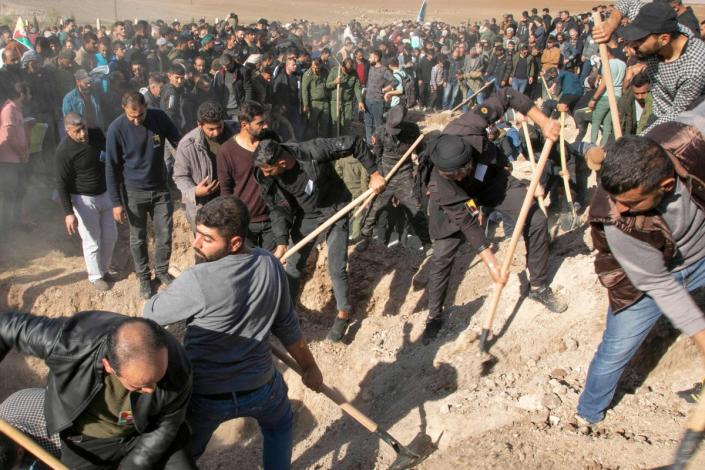

Iran’s use of extreme violence against ethnic Kurds is likely meant to provoke a response by Iraqi-based armed rebel groups and lend credence to its narrative that the protests will lead to national dissolution.
In Iranian attacks on Iraqi Kurdistan over the past few weeks, dozens of civilians have been killed,
hundreds of people have been injured and thousands of people have been displaced from the cities, said Mr Ghoreishi. So far none of the groups, which include the Kurdistan Democratic Party of Iran, a left-leaning group called Komola and an Iranian offshoot of the PKK, has taken the bait.
“The Kurdish armed opposition groups are cognizant of the fact that if they took any material action it would completely play into the hands of Tehran,” said Mohammad Salih, a Washington-based Middle East analyst specialising in Kurdish affairs. “That would derail the uprising.”
The attacks are coming at a time when the West and Russia are distracted by the conflict raging in eastern Europe. Russia maintains a military presence in northern Syria and is the primary benefactor of the Syrian regime. The United States maintains a military presence in both Iraq and Syria, where it is partnered with Kurds in ongoing efforts to defeat Isis remnants. But both Moscow and Washiington have been largely muted about the Iranian and Turkish attacks on Kurds.
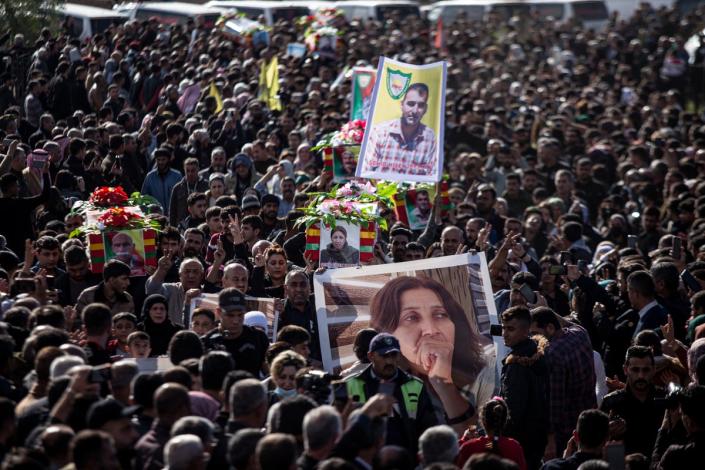

“The broader regional power vacuum has provided an opportunity,” said Mr Salih. “Until a few months ago the US would have had something strong to stay. In the case of Syria before the Ukraine crisis we could have expected a country like Russia to say something. But they’re pretty much silent.”

